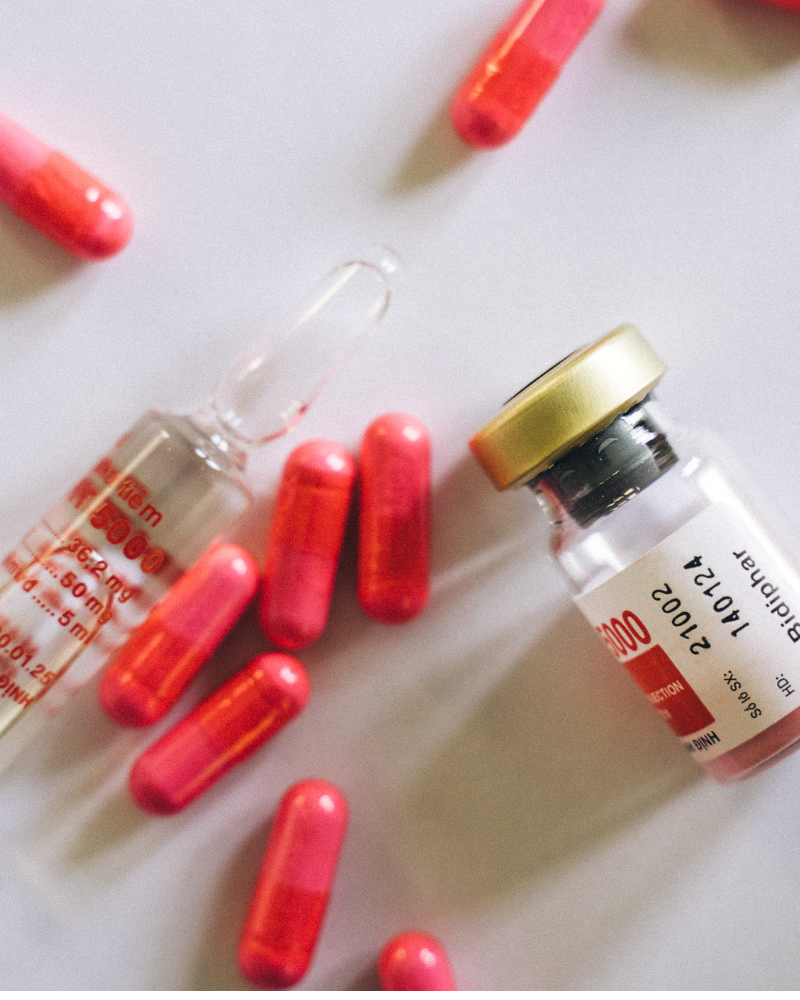Medication dependence refers to a form of addiction in which a person becomes physically or psychologically reliant on the regular use of certain medications and is no longer able to control their consumption independently. This dependence often develops gradually and goes unnoticed, as the medications are initially prescribed by a doctor and taken to treat medical conditions. A typical warning sign is the urge to continue taking the medication even when the original reason—such as pain or sleep disorders—is no longer present. Dependence usually develops step by step, and the body becomes accustomed to the substance, which can lead to an unnoticed increase in dosage in order to achieve the desired effects.
Medication dependence in old age
The risk of medication dependence is especially high among older adults, as they often take medications for pain or sleep over extended periods. Chronic conditions or illnesses can result in certain medications being used regularly for years, which increases the risk of developing tolerance or dependence. Older people often do not realize they are becoming dependent, since they see these medications as just part of their daily routine. One preventive measure is to have regular consultations with a doctor, who should frequently review the medication plan to ensure that each medication is truly necessary. Educating patients about alternative treatment options, such as physical therapy or relaxation exercises, can also help reduce medication use.


Drug addiction among nursing staff
Nurses often face significant pressure due to the demands of their profession. Long working hours, night and shift work, and high physical demands can lead them to use medication to cope with these challenges. Painkillers or sleeping aids are frequently taken to relieve issues such as back pain or to promote sleep after a strenuous shift. However, these medications can quickly lead to dependency if not used under control and only when medically necessary. Stress management and relaxation techniques can help prevent this by enabling better coping with professional demands. Employers should be aware of these risks and offer psychological support to their nursing staff to protect employees’ health in the long term.
Medication dependence and the role of relatives
Family members play an important role in dealing with medication dependence, as they are often the first to notice changes in behavior or mood. Symptoms such as withdrawal, irritability, or an increasing preoccupation with the medication are common signs that family members or friends may notice first. Family members can gently start a conversation and share their observations without being judgmental, encouraging the person affected to seek professional help. Offering to accompany them to doctor or counseling appointments can also help lower the threshold for seeking support. In this way, family members can provide valuable support in paving the way out of dependence.
Drug addiction in Germany
In Germany, medication dependence is a widespread phenomenon affecting an estimated 1.4 to 1.9 million people. Women are particularly affected, as they are more likely to use prescription drugs for sleep disorders or as tranquilizers. These figures make it clear that medication dependence is not a marginal issue, but one that impacts many people—often without them being aware of their dependence. Sleep aids and tranquilizers, especially benzodiazepines, are of particular concern due to their high risk of addiction. This statistic highlights the importance of prevention and education to inform people about the risks of medication misuse and the options for early intervention.

Medication addiction: Which medications have a high risk of addiction?
Not every medication carries the same risk of dependency. People who need to take certain groups of medications over an extended period are particularly at risk. Medications with a high potential for addiction include opiates, which are found in painkillers and prescribed to relieve severe pain. Benzodiazepines, which are prescribed as sleeping pills or tranquilizers, also have a high risk of dependency because regular use can lead to tolerance. Stimulants, mainly used to treat ADHD, are also potentially addictive. It is important that patients are regularly monitored by a doctor to ensure the medication is truly necessary and to prevent misuse.
Guideline for the Treatment of Medication Dependency
In Germany, there are guidelines for the treatment of medication dependency that serve as a reference for doctors and therapists. These guidelines include proven treatment steps and take into account both physical withdrawal and psychotherapeutic support. For example, in cases of severe dependency, inpatient withdrawal is often recommended to ensure medical supervision of possible withdrawal symptoms. This is usually followed by psychotherapy or group therapy to address the psychological aspects of addiction. The guidelines serve as quality standards to enable well-founded therapy tailored to the individual needs of patients.
Symptoms of Medication Dependency: When Does Use Become Critical?
Medication dependency can often be recognized by specific symptoms that develop over time. A common sign is loss of control over use—the person affected can no longer reduce or stop taking the medication, even if they want to. Increasing the dose without medical advice is also a frequent symptom, as the original amount often no longer produces the desired effects. Withdrawal symptoms such as sleep disturbances, restlessness, or physical complaints may occur when the medication is not taken. In addition, those affected often report an increased craving for the medication, which pushes other interests and social contacts into the background. All these signs indicate that professional help is needed to get the dependency under control.
Counseling Centers and Self-Help Groups for People with Medication Dependency
Counseling centers and self-help groups are important resources for people struggling with medication dependence. At counseling centers, those affected and their families can receive anonymous and confidential information about treatment options and available support services. Self-help groups provide a safe space where individuals can share experiences and support each other. Sharing experiences and being part of a community helps many people cope with the challenges of addiction and motivates them to remain abstinent in the long term. This type of support is a valuable addition to professional therapy for many individuals.
Consequences of Medication Dependence: Physical and Social Effects
Uncontrolled medication dependence often leads to far-reaching and long-term consequences that affect not only health but also the social lives of those affected. Physical harm can include lasting damage to organs such as the liver or kidneys, especially when painkillers or sedatives are misused. Mental health is also frequently impacted, with psychological issues such as depression or anxiety often developing as a result of addiction. Social problems, such as withdrawing from family and friends or neglecting work and other responsibilities, are also common consequences. Early detection and timely treatment of medication dependence are crucial to minimize long-term effects and pave the way back to a healthy, independent life.



